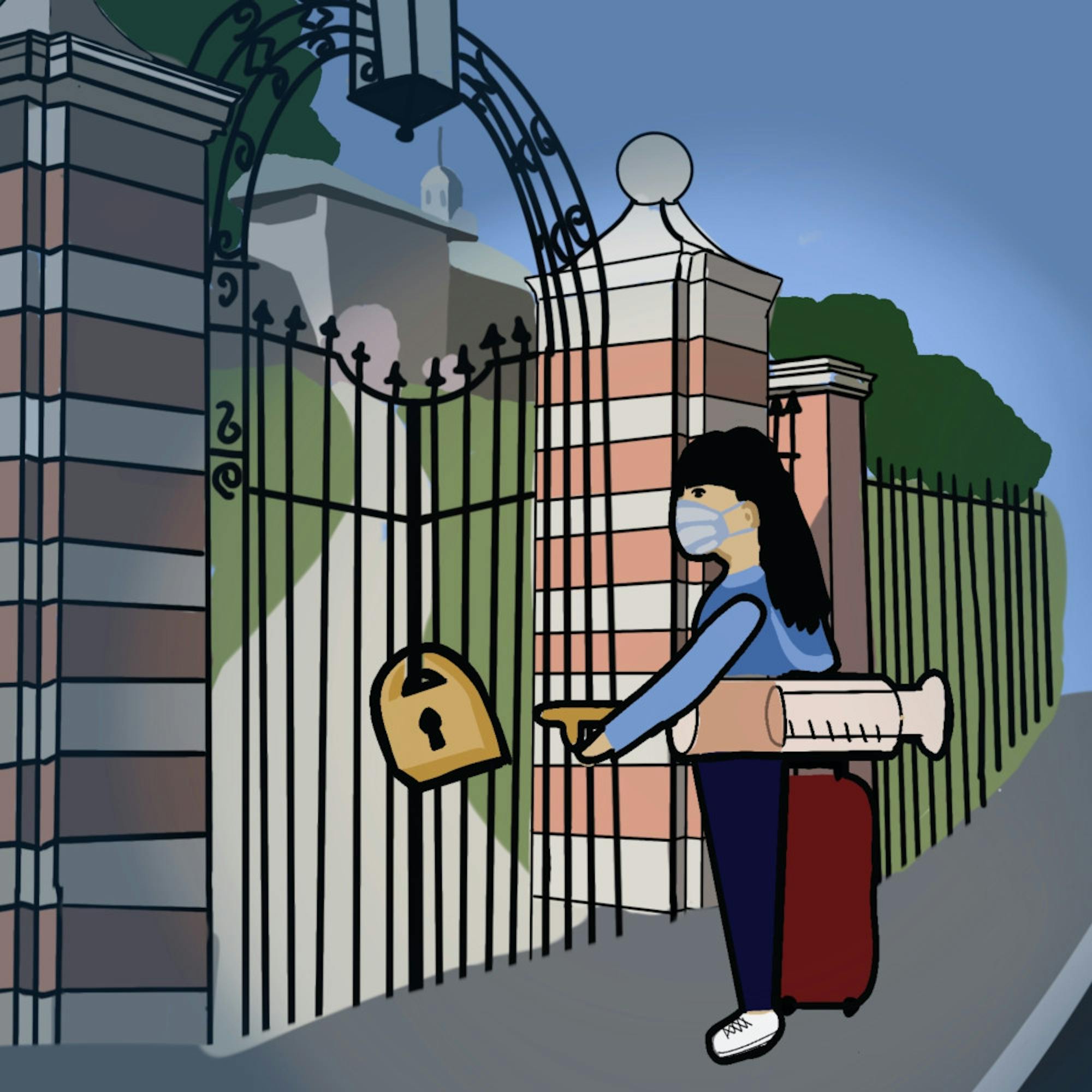For the past few months, vaccine rollout has ramped up significantly in the United States: About one in four adults are fully vaccinated, and as of April 21, over 134 million people had received at least one dose. Some Tufts students have already gotten vaccinated, and all those over 16 who work, live or study in Massachusetts became eligible on April 19. This summer will hopefully mark a turning point in the pandemic as vaccine distribution continues to accelerate. To maximize the possibility of a more normal academic and social life next semester, Tufts should both increase accessibility to vaccines and also require vaccinations for in-person students this fall.
Over the past year, the isolation arising from the shift to virtual learning and social environments has contributed to a decline in students’ mental health and a corresponding dip in academic performance. In fact, 80% of students who responded to the TCU Senate’s fall exit survey indicated that their mental health negatively impacted their academic, work and social lives. It’s a vicious cycle which we have unfortunately grown accustomed to by now.
A fully vaccinated student body would provide a cushion of protection that would entirely change the student experience at Tufts.The spread of new, more contagious COVID-19 variants may complicate future projections, but the prospect of widespread vaccination nevertheless paves a promising path forward, delivering an end to the pandemic.The vaccines have been shown to greatly reduce the risk of getting COVID-19: The Pfizer-BioNTech vaccine proved 95% effective in preventing COVID-19 in those without prior infection, and the Moderna vaccine was shown to be about 94.1% effective in preventing symptomatic infection.
Scientists are unsure if vaccinated people can still have an asymptomatic infection and pass it to others without knowing, which is why vaccinated people still need to wear masks and maintain social distance. However, the Centers for Disease Control and Prevention has changed their guidelines to indicate that fully vaccinated people may gather indoors with other fully vaccinated people without masks or social distancing measures.This would allow university clubs to have in-person meetings, enable social groups to host small events and make it possible to hold classes with normal desk setups, which facilitate group discussion and collaboration between students.
Additionally, analyses have suggested that college students played a large part in the virus’ spread in some communities; when students returned to school in fall of 2020, rates of infection and death in college towns rose substantially among older members of these communities. Requiring all Tufts students to get vaccinated would not only allow on-campus life to begin its return back to normalcy, but it would also protect residents of Medford, Somerville and other communities with which Tufts students interact.
Many experts agree that private universities are legally allowed to require a vaccine as long as it permits exemptions for religious or medical reasons and provides a remote option for students who are unwilling to comply. In 2021, incoming first-years are required to get a vaccine for measles and hepatitis, among other diseases; Tufts could add a requirement for the COVID-19 vaccine.
It’s important to recognize that some students will be coming from parts of the world where vaccines are not as easily accessible as they are in the U.S. As of late March, in comparison to the United States’ 39.4 vaccine doses per 100 adults, only 13.7 adults out of 100 had received doses in the European Union. Additionally, as of mid-February, 130 countries had yet to offer any vaccine at all. In order to account for this, Tufts could provide a period for students to settle in on campus and get their vaccines in Massachusetts by late September or early October.
The benefits of a fully vaccinated student body are evident, but a standalone mandate without complementary efforts to increase accessibility does not take into account the existing racial inequities surrounding access to the vaccine. COVID-19 disproportionately affects people of color, and systemic health inequities have contributed to lower vaccination rates among communities of color.In the United States, Black people are being vaccinated at a rate half that of white people, and Hispanic people are getting vaccinated at rates even lower than that. A university-wide vaccine mandate without efforts to implement initiatives that enable more equitable access would convey a blindness to this data and the inequalities surrounding COVID-19 that have persisted since the beginning of the pandemic.
One way Tufts could increase access to vaccines would be to offer free vaccinations on campus. This would make it much easier for students to sign up for vaccinations, in contrast to the decentralized, time-consuming process that students are currently navigating, which entails constantly refreshing CVS’s website or Massachusetts’ mass vaccination site websites. Some students have resorted to Twitter accounts which notify them when new appointments become available, but many new slots are taken almost immediately. An on-campus vaccination site would streamline this process by making it easier to sign up for an appointment, eliminating the costs of transportation to a vaccination site and making the system much easier to navigate overall.
By taking steps to increase access to vaccines and enacting a vaccine mandate for the fall, Tufts has the power to provide us with the resources necessary to return to the in-person social interactions and academic experiences that we crave. Tufts must step up to the challenge during these final stages of the pandemic; our ability to succeed as college students and the wellbeing of our communities depend on it.






